Delivered by digital learning
Study the characteristics of terrorism, terrorist tactics and counter-terrorism
From the Handa Centre for the Study of Terrorism and Political Violence (CSTPV) at the University of St Andrews
NOW ENROLLING FOR JUNE 2024

Early Booking Discount for June Intake 2024!
Book your place before the 12th of April 2024!
For more information about the course content, fees, course faculty, etc. - please send us an email at security@informaconnect.com or visit the new module website page
Join Terrorism Studies from St. Andrews University
Established in 2006, Terrorism Studies from the University of St. Andrews was the first international e-learning course to provide individuals, military and police, as well as public and private sector organisations, with an understanding of the latest scholarship and thinking on terrorism.
Many years later, with over 5000 participants having enrolled from 75 countries, this course continues to benefit all those who take part as well as grow in content and popularity.
Plus, Terrorism Studies is recognised globally and delivers excellence via accessible e-learning, and can be studied from anywhere in the world!
Learn while you work, apply your knowledge to your day-to-day responsibilities straight away...
NEW 2023 MODULE - Terrorism from the Extreme Right
Examine violence from the extreme right, tracing the ideological roots of the movement to the events on January 6th 2021 at the US Capitol. The module considers the appropriate terminology and labels to apply to this particular threat, how the extreme right varies over time and between countries.
The module focuses on the historical development of the extreme right and the subcultures within this broad movement. Having done so, it engages with the different forms of violence utilised by right-wing extremists, how the movement organises (or eschews organisation) and how it communicates both within the movement and to a wider audience.
NEW 2022 MODULE - Northern Ireland: The Troubles
This module uses the case study of the Troubles – over thirty years of unrest largely concentrated in the north of Ireland – to explore key themes in the study of terrorism and political violence. These include terrorist motivations, types of violence, state responses, and the role of terrorists in bringing a conflict to its end.
As societies around the world become increasingly divided by issues of identity, territory, and belonging, this module demonstrates how those divisions can be leveraged to produce a conflict which, while changing features over time, remained concerned with a single division with no middle ground.
Core Modules
- Key Issues in Terrorism and Political Violence
- Terrorist Ideologies, Aims, Beliefs, and Motivations
- Terrorist Weapons & Tactics
- International Policing Policy
- Aviation Terrorism & Security
- Maritime Terrorism Security
- Critical Infrastructure Protection
- Terrorism, Cyber Threats and the Internet
- Radicalisation, Counter-radicalisation and Deradicalisation
- Terrorism and Human Rights
Award & Accreditation
- Successful completion of the Certificate/Advanced Certificate leads to a certificate of professional development from the University of St Andrews.
- Completion of 4 online modules leads to the award of the Certificate in Terrorism Studies, SCQF Level 8 and 20 credits.
- Completion of 8 online modules leads to the award of the Advanced Certificate in Terrorism Studies, SCQF Level 8 and 40 credits.
- Individual modules do not carry an accreditation.
Successful recipients of the Advanced Certificate in Terrorism Studies are eligible to apply for the MLitt in Terrorism and Political Violence (distance learning) at the University of St Andrews.
Your Digital Badge!
You can now have a digital version of your Certification!
Powered by Credly, your Digital Badge is an online version of your credentials that contains a description of your Award, Demonstrated Skills and what it took to obtain your Certificate qualification.
Also, your Digital Badge allows you to get labor market insights data including job openings, salary ranges and selected top employers, and you can display the badge in your email signature, electronic copies of your resume and on social media sites like LinkedIn, Facebook and Twitter!


Informa Connect Academy: Even more...
- Accessible – 24/7 availability from wherever you have an internet connection
- Flexible – take control of where, when, how and the rate at which you study
- Professional – industry leading course directors and tutors
- Network – use our online tutorial forum to ask questions, discuss and share knowledge with tutors and like-minded professionals from around the world
- Cost-Effective – save money with no additional travel or accommodation costs



